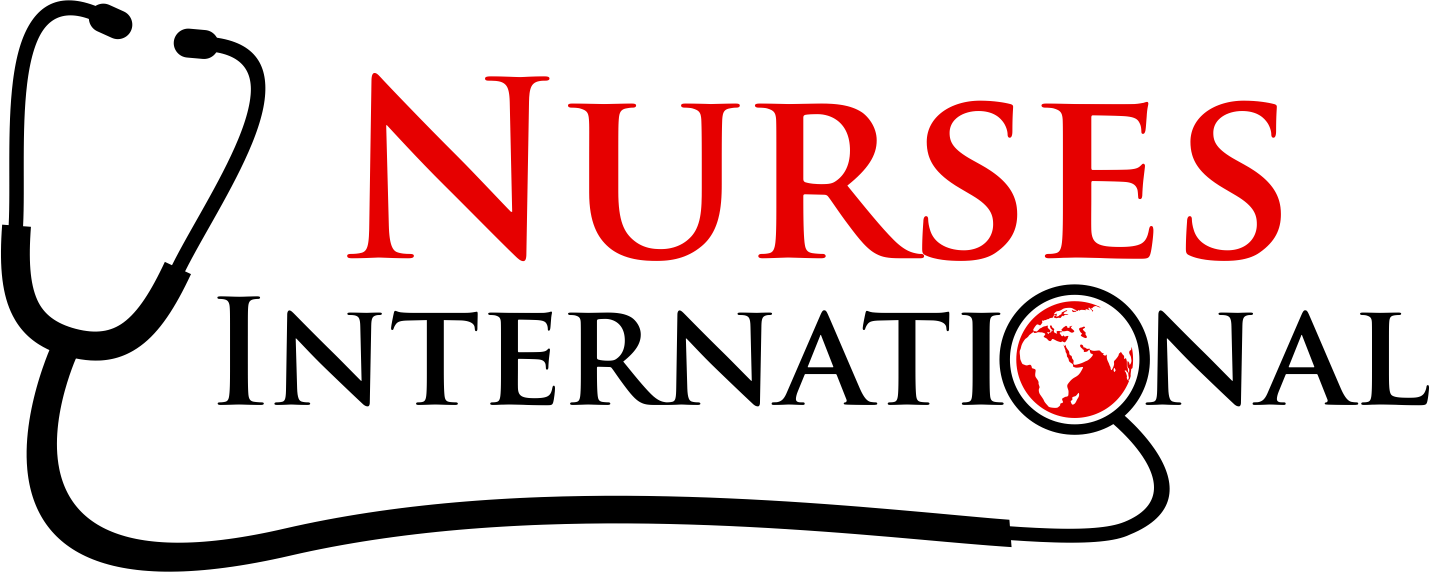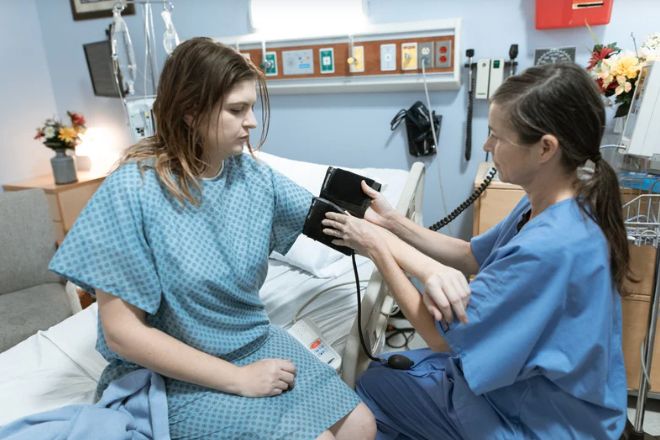-
Course Home PageCourse Home Page

-
Health Assessment Home page

DISCLAIMER: This content is designed to enhance the study of nursing. This content is generic and is not designed to take into account the specific objectives, needs, and/or circumstances of any particular region or country. To become a nurse, learners must successfully complete a program of study approved by the government or state-regulatory agency in their place of residence. We cannot guarantee that the successful completion of these materials will enable you to practice in your place of residence. Make sure that you are in compliance with the scope of practice of your regulatory body before attempting to put into use or practice any of the knowledge gained.Course Overview
Welcome to the Health Assessment course. This course is designed to provide nursing students with the knowledge to perform comprehensive health assessments across diverse client populations. The course explores fundamental principles of health assessment, interviewing techniques, physical examination skills, and the critical reasoning required to differentiate normal from abnormal findings. The Health Assessment course is an integral component of the BSN Curriculum. It provides students with the knowledge and skills necessary to collect, interpret, and document health assessment data as the foundation for evidence-based nursing care in various healthcare settings.

Course Development
The Nutrition Course for Nurses is a competency-based course developed in partnership with Nurses International (N.I.) and NextGenU.org (NGU). Competencies were developed in collaboration with subject matter experts in nutrition and nursing education and practice. The Essentials: Core Competencies for Professional Nursing Education direct the course objectives. The course uses learning resources from accredited world-class organizations such as the World Health Organization (WHO), the U.S. National Institutes of Mental Health (NIMH), universities, international guidelines, Pressbooks, and peer-reviewed open access peer reviewed nursing textbooks and journals. The Moodle Learning Management System (LMS) facilitates distance learning.
The course was written by the Nurses International faculty and designed in conjunction with the NextGenU.org design team.
The Nurses International core faculty writers and reviewers: Stephanie Marfurt RN, PhD; Kathleen Capone MS, RN, CNE, EdD; Emily Parker RN, MSN, FNP-BC; and Vanessa Teed MSN, RN, CEN, CGNC.Course Structure
The course includes four units::
Introduction to Health Assessment
Introduction to Complete Health History
Introduction to Physical Assessment
The Complete Health Assessment of an Adult
Each unit comprises:
Individual lessons with accompanying reading materials
PowerPoint presentations
Learner self-assessment quizzes
Critical thinking questions
Flashcard learning material
Case study activities
Unit exams
Assessment
A grade of 100% is required on quizzes and unit exams. Submission of required activities for all case studies and reflection exercises is necessary to progress to the next lesson or section.
The estimated completion time is 93 hours.
A practice exam is provided at the end of the course material so that learners can use this to help them prepare for the final exam. This is not graded.
A comprehensive final exam consisting of 50 multiple-choice questions is administered at the end of the course.
A grade of 80% is required to pass the exam. If not achieved, learners may self-remediate and attempt a second exam of comparable content.A certificate of completion is available for download upon successful course completion.
To PASS and obtain a certificate, learners must complete:
All reading requirements
All quizzes and unit exams with a passing grade of 100%
All activities and case studies
The final exam with a minimum of 80% (maximum 2 attempts)
Self and course evaluation forms
Prerequisites
No prerequisites are required
Information for Institutions
NextGenU.org is happy to provide your institution with:
A link to and a description of the course training
Your grade on the final exam
Your work products (e.g., case study activities) and any other shared materials you authorize
Your evaluations -- course and self-assessments
A copy of your certificate of completion
Obtaining a Degree
NextGenU.org co-sponsors degree programs with institutional partners. To obtain a full degree co-sponsored with NextGenU.org, registrants must be enrolled in a degree program as a student of a NextGenU.org institutional partner. If you think your institution might be interested in offering a degree with NextGenU.org, please feel free to contact us.
We hope that you will find this a rewarding learning experience, and we welcome your assessment and feedback to help us improve this course for future students.
For Nurse Educators
The course teacher resources include a study guide that includes a syllabus, recommended teaching strategies and a skills directory. Nurse educators may contact info@nursesinternational.org with queries/permission to access faculty resources for this course.
Technical Support
For any technical difficulties or course access questions please contact support@nextgenu.org for assistance.
Disclaimer
This content is designed to enhance your study; we cannot guarantee that the successful completion of these materials will enable you to work in your place of residence as regulations vary by location. If you plan to practice using your new knowledge, to ensure safety and compliance with your local laws, you must complete a program of study approved by the government and relevant local regulatory agencies in your place of practice.
NextGenU.org does not directly confer academic degrees or guarantee that learning institutions will accept NextGenU.org coursework for credit.
-
Unit 1 Introduction to Health Assessment
Unit Learning Outcomes:

- Recognize the role of health assessment as part of the nursing process
- Describe different approaches to health assessment
- Describe how critical reasoning is used to delineate normal and abnormal findings
- Relate the nurse’s role in health promotion when conducting a health assessment
-
Unit 1: Lesson 1: Role of Health Assessment in the Nursing Process
Student Learning Outcomes:
Upon completion of this lesson, you will be able to:
- Identify the steps of the nursing process
- Identify subjective and objective data
- Detail the components of the complete health history
- Explain the role of health assessment in the nursing process
Approximate time required for the readings for this lesson (at 144 words/minute): 2 hours and 19 minutes.
3 URLs -
Unit 1: Lesson 2: Types of Health Assessment
Student Learning Outcomes:
Upon completion of this lesson, you will be able to:
- Describe the types of health assessment
- Determine the criteria for health assessment frequency
- Identify the assessment criteria that require immediate intervention
Approximate time required for the readings for this lesson (at 144 words/minute): 2 hours and 45 minutes.
3 URLs -
Unit 1: Lesson 3: Process of Clinical Judgment
Student Learning Outcomes:
Upon completion of this lesson, you will be able to:
- Define clinical judgment
- Describe the process of clinical judgment
- Identify the steps used in clinical judgment
- Describe how clinical judgment is used in nursing
Approximate time required for the readings for this lesson (at 144 words/minute): 1 hour and 51 minutes.
3 URLs -
Unit 1: Lesson 4: Nursing Role in Health Promotion
Student Learning Outcomes:
Upon completion of this lesson, you will be able to:
- Define health promotion
- Describe the types of health promotion approaches
Approximate time required for the readings for this lesson (at 144 words/minute): 2 hours.
3 URLs -
Unit 1: Lesson 5: Documentation
Student Learning Outcomes:
Upon completion of this lesson, you will be able to:
- Explain the rationale for accurate documentation
- Explain the importance of privacy, confidentiality and security in documentation
- Identify the types of documentation methods and systems
Approximate time required for the readings for this lesson (at 144 words/minute): 2 hours and 39 minutes.
3 URLs -
Unit 2 Intro to Complete Health History
Unit Learning Outcomes:

- List the components of a health history interview
- Describe how to obtain an accurate, comprehensive history from the patient
- Outline the content of each component of the health history interview
-
Unit 2: Lesson 1: The Patient Interview
Student Learning Outcomes:
Upon completion of this lesson, you will be able to:
- Identify the key components and structure of the health assessment interview
- Compare and contrast different interview approaches in various clinical settings
- Describe the therapeutic communication techniques used during a client interview
Approximate time required for the readings for this lesson (at 144 words/minute): 2 hours and 42 minutes.
3 URLs -
Unit 2: Lesson 2: Health History
Student Learning Outcomes:
Upon completion of this lesson, you will be able to:
- List the components of a health history
- Describe how to obtain an accurate, comprehensive history
- Outline the content of each part of the health history interview
Approximate time required for the readings for this lesson (at 144 words/minute): 1 hour and 50 minutes.
3 URLs -
Unit 2: Lesson 3: Cultural Assessment
Student Learning Outcomes:
Upon completion of this lesson, you will be able to:
- Define cultural competence
- Define components of a cultural assessment
Approximate time required for the readings for this lesson (at 144 words/minute): 3 hours and 15 minutes.
3 URLs -
Unit 2: Lesson 4: Pain Assessment
Student Learning Outcomes:
Upon completion of this lesson, you will be able to:
- Explain the processes, procedures, and techniques in a pain assessment
- Differentiate between normal and abnormal assessment findings in pain assessment
- Outline the interventions for pain
Approximate time required for the readings for this lesson (at 144 words/minute): 2 hours and 33 minutes.
3 URLs -
Unit 2: Lesson 5: Nutritional Assessment
Student Learning Outcomes:
Upon completion of this lesson, you will be able to:
- Explain the processes, procedures and techniques in a nutrition assessment
- Differentiate between normal and abnormal assessment findings in a nutrition assessment
- Identify nutritional interventions based on assessment findings
Approximate time required for the readings for this lesson (at 144 words/minute): 2 hours and 40 minutes.
3 URLs -
Unit 3 Intro to Physical Assessment
 Unit Learning Outcomes:
Unit Learning Outcomes:- Select the appropriate technique for assessment of each system
- Interpret assessment findings in terms of normal and abnormal
-
Unit 3: Lesson 1: Physical Assessment Techniques
Student Learning Outcomes:
Upon completion of this lesson, you will be able to:
- List the four techniques used when performing a physical assessment
- Describe the psychomotor skills need to perform each physical assessment technique
Approximate time required for the readings for this lesson (at 144 words/minute): 4 hours and 5 minutes.
3 URLs -
Unit 3: Lesson 2: Equipment for Physical Assessment
Student Learning Outcomes:
Upon completion of this lesson, you will be able to:
- Identify the equipment needed for performing a physical assessment
- Explain the purpose and proper use of equipment needed for physical assessment
Approximate time required for the readings for this lesson (at 144 words/minute): 2 hours and 13 minutes.
3 URLs -
Unit 3: Lesson 3: Assessment of Height, Weight and Vital Signs
Student Learning Outcomes:
Upon completion of this lesson, you will be able to:
- Interpret measures of height, weight and vital signs
- Explain how variations in height, weight and vital signs influence assessment findings
- Describe correct recording of height, weight and vital signs
Approximate time required for the readings for this lesson (at 144 words/minute): 3 hours.
3 URLs -
Unit 3: Lesson 4: Assessment of Skin, Hair, Nails
Student Learning Outcomes:
Upon completion of this lesson, you will be able to:
- Explain the processes, procedures and techniques in the assessment of the skin, hair and nails
- Differentiate between normal and abnormal assessment findings of the skin, hair and nails
- Identify the nurse’s role in health promotion and interventions related to skin, hair and nails
Approximate time required for the readings for this lesson (at 144 words/minute): 5 hours and 7 minutes.
3 URLs, 1 SCORM package -
Unit 3: Lesson 5: Assessment of Head and Neck (including lymph nodes)
Student Learning Outcomes:
Upon completion of this lesson, you will be able to:
- Explain the processes, procedures and techniques in the assessment of the head and neck
- Differentiate between normal and abnormal assessment findings of the head and neck
- Identify nursing health promotion interventions related to head and neck
2 URLs, 1 SCORM package -
Unit 3: Lesson 6: Assessment of the Ears, Nose, Mouth and Throat
Student Learning Outcomes:
Upon completion of this lesson, you will be able to:
- Explain the processes, procedures and techniques in the assessment of the ears, nose, mouth and throat
- Differentiate between normal and abnormal assessment findings of the ears, nose, mouth and throat
- Identify nursing health promotion interventions related to ears, nose, mouth, and throat
Approximate time required for the readings for this lesson (at 144 words/minute): 5 hours and 34 minutes.
4 URLs, 1 SCORM package -
Unit 3: Lesson 7: Assessment of the Lungs and Thorax
Student Learning Outcomes:
Upon completion of this lesson, you will be able to:
- Explain the processes, procedures and techniques in the assessment of the lung and thorax
- Differentiate between normal and abnormal assessment findings of the lungs and thorax
- Identify nursing health promotion interventions related to lungs and thorax
Approximate time required for the readings for this lesson (at 144 words/minute): 5 hours and 33 minutes.
4 URLs, 1 SCORM package -
Unit 3: Lesson 8: Assessment of Lymphatic System
Student Learning Outcomes:
Upon completion of this lesson, you will be able to:
- Explain the processes, procedures and techniques in the assessment of the lymphatic system
- Differentiate between normal and abnormal assessment findings of the lymphatic system
- Identify nursing health promotion interventions related to lymphatic system
Approximate time required for the readings for this lesson (at 144 words/minute): 3 hours and 15 minutes.
3 URLs, 1 SCORM package -
Unit 3: Lesson 9: Assessment of Heart
Student Learning Outcomes:
Upon completion of this lesson, you will be able to:
- Explain the processes, procedures and techniques in the assessment of the heart
- Differentiate between normal and abnormal assessment findings of the heart
- Identify nursing health promotion interventions related to the heart
Approximate time required for the readings for this lesson (at 144 words/minute): 4 hours and 27 minutes.
3 URLs, 1 SCORM package, 1 Quiz -
Unit 3: Lesson 10: Assessment of Breasts
Student Learning Outcomes:
Upon completion of this lesson, you will be able to:
- Explain the processes, procedures and techniques in the assessment of the breasts
- Differentiate between normal and abnormal assessment findings of the breasts
- Identify nursing health promotion interventions related to breasts
Approximate time required for the readings for this lesson (at 144 words/minute): 2 hours and 11 minutes.
3 URLs, 1 SCORM package -
Unit 3: Lesson 11: Assessment of Abdomen
Student Learning Outcomes:
Upon completion of this lesson, you will be able to:
- Explain the processes, procedures and techniques in the assessment of the abdomen
- Differentiate between normal and abnormal assessment findings of the abdomen
- Identify nursing health promotion interventions related to the abdomen
Approximate time required for the readings for this lesson (at 144 words/minute): 4 hours and 15 minutes.
3 URLs, 1 SCORM package -
Unit 3: Lesson 12: Assessment of Peripheral Circulation
Student Learning Outcomes:
Upon completion of this lesson, you will be able to:
- Explain the processes, procedures and techniques in the assessment of the peripheral circulation
- Differentiate between normal and abnormal assessment findings of the peripheral circulation
- Identify nursing health promotion interventions related to peripheral circulation
Approximate time required for the readings for this lesson (at 144 words/minute): 3 hours and 12 minutes.
4 URLs, 1 SCORM package -
Unit 3: Lesson 13: Assessment of the Neurological System
Student Learning Outcomes:
Upon completion of this lesson, you will be able to:
- Explain the processes, procedures and techniques in the assessment of the neurological system
- Differentiate between normal and abnormal assessment findings of the neurological system
- Identify nursing health promotion interventions related to the neurological system
Approximate time required for the readings for this lesson (at 144 words/minute): 6 hours and 6 minutes.
3 URLs, 1 SCORM package -
Unit 3: Lesson 14: Assessment of Muscular System
Student Learning Outcomes:
Upon completion of this lesson, you will be able to:
- Explain the processes, procedures and techniques in the assessment of the muscular system
- Differentiate between normal and abnormal assessment findings of the muscular system
- Identify nursing health promotion interventions related to the muscular system
Approximate time required for the readings for this lesson (at 144 words/minute): 5 hours and 50 minutes.
4 URLs, 1 SCORM package -
Unit 3: Lesson 15: Assessment of Female Genital-Urinary System (G/U)
Student Learning Outcomes:
Upon completion of this lesson, you will be able to:
- Explain the processes, procedures and techniques in the assessment of the female g/u system
- Differentiate between normal and abnormal assessment findings of the female g/u system
- Identify nursing health promotion and disease prevention interventions related to the female g/u system
Approximate time required for the readings for this lesson (at 144 words/minute): 3 hours and 50 minutes.
4 URLs, 1 SCORM package -
Unit 3: Lesson 16: Assessment of Male Genital-Urinary System (G/U)
Student Learning Outcomes:
Upon completion of this lesson, you will be able to:
- Explain the processes, procedures and techniques in the assessment of the male g/u system
- Differentiate between normal and abnormal assessment findings of the male g/u system
- Identify nursing health promotion interventions related to male g/u system
Approximate time required for the readings for this lesson (at 144 words/minute): 2 hours and 52 minutes.
3 URLs, 1 SCORM package -
Unit 4 The Complete Health Assessment of an Adult
Unit Learning Outcomes:

- Discuss the sequence of steps when conducting a complete adult health assessment
-
Unit 4: Lesson 1: Head to Toe Assessment
Student Learning Outcomes:
Upon completion of this lesson, you will be able to:
- Explain the processes, procedures and techniques in a head-to-toe assessment
- Describe documentation of a complete health assessment of an adult
Approximate time required for the readings for this lesson (at 144 words/minute): 2 hours and 10 minutes.
3 URLs, 1 Quiz -
Unit 4: Lesson 2: Physical Exam of the Older Adult
Student Learning Outcomes:
Upon completion of this lesson, you will be able to:
- Examine the considerations for examination of the older adult including approach, accommodations etc.
- Detail the complete physical exam of the older adult
- Identity the expected changes in the assessment of the adult that are consistent with aging
Approximate time required for the readings for this lesson (at 144 words/minute): 1 hour and 38 minutes.
3 URLs, 1 SCORM package -
Course and Self Evaluation & Certificate
 In this section, you can provide feedback about this course to help us make NextGenU.org better. Once evaluations are completed, you will be able to download your certificate of completion.
In this section, you can provide feedback about this course to help us make NextGenU.org better. Once evaluations are completed, you will be able to download your certificate of completion.

